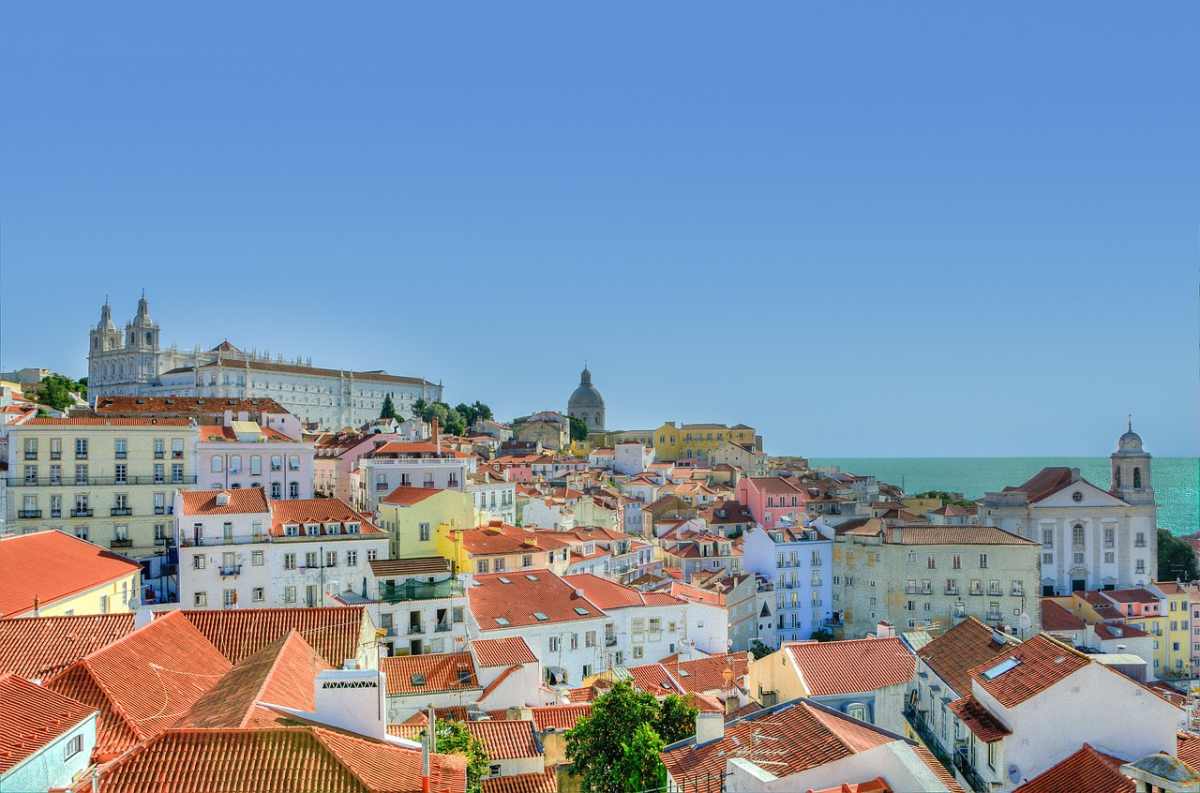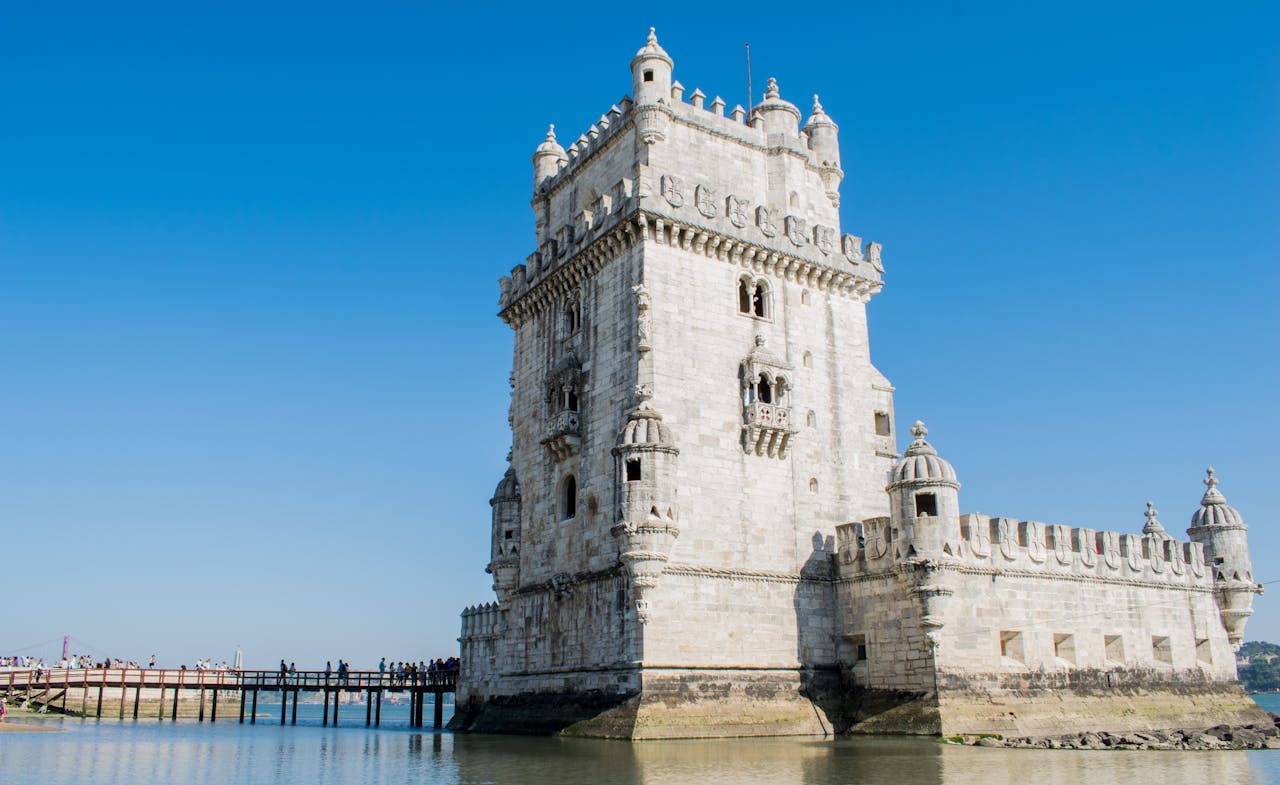葡萄牙市場研究

如何在葡萄牙充滿活力的市場中蓬勃發展?葡萄牙的市場研究揭示了葡萄牙的消費者偏好、市場趨勢和競爭動態。這就是為什麼它是明智決策和永續成長策略的基石。
什麼是葡萄牙的市場研究?
葡萄牙的市場研究為企業提供了可行的見解,為策略決策提供資訊並推動業務成長。透過在葡萄牙進行市場研究,企業可以獲得以下關鍵方面的寶貴見解:
- 消費者行為:了解葡萄牙消費者如何做出購買決定、他們的偏好和購買模式。
- 市場趨勢:識別特定產業內的新興趨勢、技術進步和消費者需求的變化。
- 競爭格局:分析競爭對手的產品、市場定位和策略,以實現差異化並獲得競爭優勢。
- 監管環境:評估影響葡萄牙業務營運的監管要求、合規問題和法律考量。
為什麼企業需要在葡萄牙進行市場研究?

市場研究幫助企業了解葡萄牙消費者的偏好、行為和購買習慣。這種理解使企業能夠調整其產品、服務和行銷策略,以有效滿足當地需求。此外,透過葡萄牙的全面市場研究,企業可以識別葡萄牙尚未開發的細分市場、新興趨勢和利基機會。它允許策略定位和有針對性的市場進入策略。
市場研究也使企業能夠評估葡萄牙的市場風險、競爭威脅和監管挑戰。這種積極主動的方法有助於降低市場進入、擴張或產品發布風險。此外,它還可以透過分析競爭對手在葡萄牙的優勢、劣勢和市場定位來幫助企業收集競爭情報。
何時在葡萄牙進行市場研究
在葡萄牙進行市場研究時,時機至關重要。以下是進行市場研究的最佳關鍵場景和階段:
- 市場進入或擴張:企業在進入葡萄牙市場或擴大現有業務之前應進行全面的市場研究。這包括了解市場動態、消費者偏好、競爭格局和監管要求。
- 新產品發布:在葡萄牙推出新產品或服務時,市場研究有助於評估市場需求、確定目標客戶群並驗證產品功能。在發布前收集見解可以最大限度地降低風險並最大限度地提高產品與市場的契合度。
- 策略規劃與決策:葡萄牙的市場研究對於策略規劃和決策過程至關重要。無論是製定業務策略、優化行銷活動或評估投資機會,數據驅動的見解都能為關鍵決策提供資訊。
無論如何,在葡萄牙開始市場研究之前,企業應考慮以下基本問題:
- 我們的目標是什麼?
- 為葡萄牙的市場研究制定明確的目標。我們是否正在尋求進入新市場、了解消費者偏好、評估競爭或驗證商機?
- 誰是我們的目標受眾?
- 確定葡萄牙的目標受眾。我們要研究的主要客戶或利害關係人是誰?他們的人口統計、行為和偏好是什麼?
- 我們需要什麼資訊?
- 透過市場研究確定所需的具體資訊。我們需要深入了解葡萄牙市場的哪些面向—消費者行為、市場規模、趨勢、定價、分銷管道或監管環境。
- 我們的預算和時間表是多少?
- 確定葡萄牙市場研究的預算和時間表。有哪些資源可用於進行研究?為資料收集、分析和報告設定現實的時間表。
- 誰將執行研究?
- 確定負責在葡萄牙執行市場研究的內部資源或外部合作夥伴。考慮與熟悉葡萄牙市場格局、經驗豐富的市場研究公司合作。
- 我們將如何使用研究結果?
- 確定研究結果如何為葡萄牙的策略決策和商業策略提供資訊。從市場研究中獲得的見解如何轉化為可行的計劃和措施?
我們目前的市場回顧和建議

我們認為,在幾個關鍵趨勢的推動下,葡萄牙的市場格局正在不斷演變。一個顯著的趨勢是各行業越來越重視永續性和環保實踐。葡萄牙消費者對環保產品和服務的需求日益增長,這為企業創新和差異化提供了機會。
另一個趨勢是席捲葡萄牙各產業的數位轉型。電子商務、數位行銷和智慧解決方案等技術的採用正在重塑消費者行為和業務運營。擁抱數位化的企業有望獲得競爭優勢並利用不斷變化的市場動態。
在經濟穩定成長和有利的商業條件的支持下,葡萄牙市場前景廣闊。該國的戰略位置、政府激勵措施和基礎設施投資為旅遊業、再生能源、技術和農業綜合企業等行業帶來了積極的前景。
因此,投資葡萄牙市場有可能獲得有吸引力的投資報酬率,特別是在符合市場趨勢和消費者偏好的行業。旅遊和酒店、再生能源、資訊科技、醫療保健以及食品和飲料行業存在機會。
重點產業和重點參與者
紡織和鞋類是葡萄牙的一些重要產業。其自然資源包括魚類、橡樹、礦石、銅、農田和潮汐能。此外,農業佔全國一半以上。北部生產綿羊、牛、山羊、豬、家禽、馬鈴薯、番茄、橄欖和葡萄,而南部則擁有廣闊的穀物田和橄欖樹田。
此外,葡萄牙還擁有多個跨行業的知名公司和品牌:
在零售領域, 索奈 是主要參與者,經營零售連鎖店,例如 大陸 和 沃滕。公司如 一氧化氮合成酶 和 沃達豐葡萄牙公司 主導電信業,提供從行動到寬頻的服務。 超級博克集團 和 塞爾韋哈斯中心 是葡萄牙飲料行業的主要參與者,以啤酒生產而聞名。製藥業以跨國公司為特色,例如 比亞爾 和 霍維奧內,這有助於葡萄牙醫療保健的進步。
鄰裡
葡萄牙首都里斯本是歐洲大陸的西部邊緣城市,面積近 40 平方英里。它是該國最繁華的城市。它為遊客提供一系列的景點、海灘、博物館和旅遊景點。這座葡萄牙南部城市是阿爾加維地區的中心。它以其氣候、海灘和對所有遊客的度假勝地的吸引力而聞名。
葡萄牙以其迷人的旅遊目的地而聞名,吸引來自世界各地的遊客:
- 里斯本: 這座充滿活力的首都融合了聖喬治城堡等歷史地標和 LX 工廠和熱鬧的上城區等現代景點。
- 波爾圖:它以其迷人的河濱、波特酒窖和橫跨杜羅河的引人注目的路易斯一世大橋而聞名。
- 阿爾加維海岸線:以其令人驚嘆的海灘(如 Praia da Marinha)和風景如畫的沿海城鎮(如拉各斯和阿爾布費拉)而聞名。
- 杜羅河谷:它是聯合國教科文組織世界遺產,以其梯田葡萄園、河流巡遊和品酒而聞名。
- 辛特拉:童話般的小鎮,擁有宮殿和花園,包括色彩繽紛的佩納宮和神秘的雷加萊拉宮。
- 埃武拉:一座歷史悠久的城市,擁有羅馬遺址、中世紀建築和令人印象深刻的戴安娜神廟。
- 馬德拉:鬱鬱蔥蔥的島嶼天堂,以其植物園、引人注目的懸崖和風景優美的列瓦達步道而聞名。
消費者基礎
許多葡萄牙公民的購買習慣已經改變。這種變化始於 2008 年的經濟危機,並持續到近代,因為人們對價格的意識越來越強,並尋求最優惠的價格和折扣。他們傾向於尋找促銷活動而不是支付全價購買商品。他們還花更少的錢購物更多。這種趨勢現在在葡萄牙消費者中很流行。其中許多是歐洲促銷最大的最終用戶。在購買食品時,超過三分之二的葡萄牙購物者將價格視為最關鍵的指標。
產業吸引力:葡萄牙市場的SWOT分析
葡萄牙市場為希望在該國建立業務或擴大業務的企業帶來了獨特的機會和挑戰。進行 SWOT 分析有助於評估行業吸引力並了解影響市場動態的關鍵因素。讓我們探討一下與葡萄牙市場相關的優勢、劣勢、機會和威脅:
優勢:
- 豐富的文化遺產和多樣化的旅遊產品:葡萄牙豐富的歷史、迷人的風景以及里斯本和波爾圖等充滿活力的城市每年吸引數百萬遊客。該國的文化遺產,包括歷史古蹟、節日和烹飪傳統,對國際遊客具有獨特的吸引力,並對經濟做出了重大貢獻。
- 不斷發展的技術和創新生態系統:里斯本已成為新創企業、科技公司和創新驅動型企業的重要中心。該市的支持性生態系統,加上優惠的政策和人才管道,促進了創業精神並吸引了金融科技、生物技術和數位服務等領域的投資。
- 對再生能源和永續發展的堅定承諾:葡萄牙在再生能源生產方面取得了顯著進步,其中很大一部分電力來自風能、太陽能和水力發電。該國對永續發展的承諾符合全球趨勢,並使葡萄牙成為清潔能源倡議的領導者。
弱點:
- 經濟波動和歷史債務負擔:葡萄牙經歷了經濟挑戰,包括動盪時期和高公共債務。這可能會影響投資者的信心並限制政府基礎設施和公共服務支出。
- 國內市場規模相對較小:與較大的歐洲經濟體相比,葡萄牙的國內市場相對較小。這限制了規模,並可能給僅在國內尋求快速成長的公司帶來挑戰。
- 對某些行業的依賴:經濟對旅遊業、農業和傳統工業等部門的依賴可能使葡萄牙容易受到外部衝擊或消費者偏好變化的影響。
機會:
- 擴大出口市場和國際貿易:葡萄牙可以利用其戰略位置和貿易協定擴大對歐洲以外新市場的出口。加強國際貿易關係為葡萄牙企業提供多元化和發展的機會。
- 再生能源和數位服務等新興產業:對再生能源的關注以及技術和數位轉型的進步為具有高成長潛力的新興產業的創新和投資開闢了途徑。
- 對優質農產品和葡萄酒的需求不斷增加:葡萄牙的農業部門以葡萄酒、橄欖油和特殊作物而聞名,可以利用全球對優質、永續來源產品不斷增長的需求。
威脅:
- 外部經濟因素與全球市場的不確定性:葡萄牙容易受到外部經濟因素的影響,例如全球貿易動態、利率或地緣政治緊張局勢的變化,這些因素可能會影響投資和商業運作。
- 來自歐洲鄰國的競爭:靠近具有競爭力產業的較大歐洲經濟體,這帶來了市場份額和出口競爭力的挑戰。
- 監管變化和政策不確定性:國內和歐盟內部法規或政策的變化可能會為企業帶來不確定性,需要採取適應和合規措施。
在市場上發展業務的原因
美國公司可以透過在葡萄牙開展業務進入歐盟。與所有其他歐盟成員國一樣,該國的港口和邊界對與其他成員國的自由貿易開放。歐盟是全球頂級市場。
葡萄牙提供許多好處,例如南部 300 天的陽光以及便宜的食品和資產價格。它還提供了一個安全的環境。在世界銀行認可的 190 個國家中,葡萄牙的營商便利度排名第一。這一職位標誌著商業成功的有利氛圍。
葡萄牙取得瞭如此多的成就,成為在世界該地區開展業務的最佳地點。
SIS International 在葡萄牙的市場研究如何幫助企業
SIS國際 提供全面的市場研究和諮詢服務,旨在幫助企業駕馭葡萄牙市場格局。以下是他們的專業知識如何幫助企業成功:
降低風險:
安全資訊系統 幫助企業識別潛在風險、市場挑戰和監管障礙,從而製定明智的決策和風險緩解策略。
增加收入:
SIS International 提供的策略市場洞察可協助企業識別未開發的細分市場、客戶偏好和競爭定位,最終促進收入成長和市場擴張。
省錢:
高效的市場研究有助於優化資源配置,最大限度地減少不必要的支出,並確保針對葡萄牙市場量身定制具有成本效益的市場進入策略。
節省時間:
SIS International 簡化的研究方法和專家分析加快了市場進入過程,縮短了上市時間,並使企業能夠迅速利用新興機會。
加速成長和創新:
透過緊跟行業趨勢、消費者行為和創新驅動因素,SIS International 幫助企業創新產品、服務和商業模式,與葡萄牙消費者產生共鳴,促進持續成長和競爭力。
提高投資報酬率:
SIS International 的市場研究工作得出的可行見解可指導針對葡萄牙市場格局的策略資源分配和市場進入策略,從而最大限度地提高投資回報。



